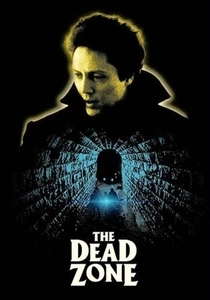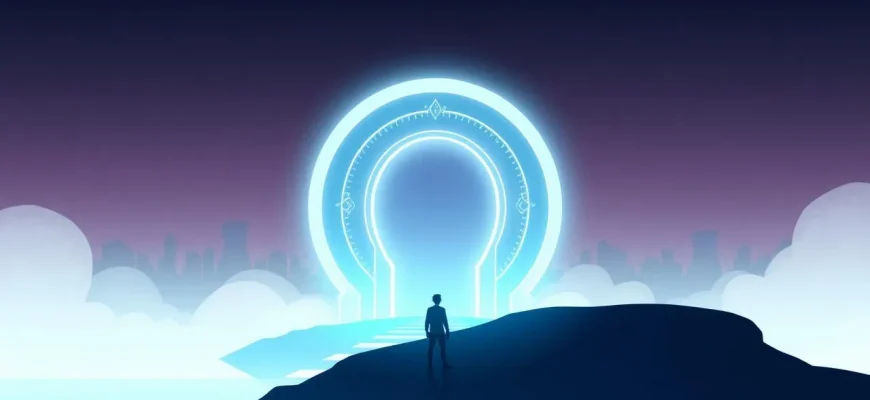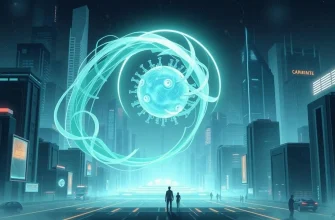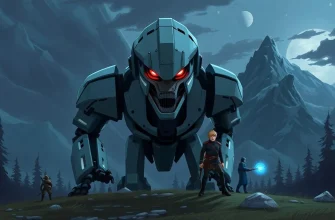Dive into a world where the fantastical meets the terrifyingly real with our curated list of fantasy films that incorporate nuclear themes. These movies blend the imaginative realms of fantasy with the stark reality of nuclear power and weaponry, offering viewers a thought-provoking experience that challenges the boundaries of both genres. From post-apocalyptic landscapes to magical interventions in nuclear crises, this collection promises to entertain while sparking discussions on the implications of nuclear technology in a world where magic exists.

The World, the Flesh and the Devil (1959)
Description: After a nuclear catastrophe, three survivors navigate a world where societal norms are gone, exploring themes of race, survival, and fantasy scenarios.
Fact: It was one of the first films to address racial issues in a post-apocalyptic setting.
 Watch Now
Watch Now 
The Dark Crystal (1982)
Description: In this fantasy world, the Gelflings must prevent the Skeksis from using a crystal to control the world, which has parallels to the control of nuclear power.
Fact: Jim Henson's creation, this film uses puppetry to create an entirely new world, with no human characters.
 Watch Now
Watch Now 
The Secret of NIMH (1982)
Description: Rats with enhanced intelligence from a lab experiment must save their home, with themes of scientific experimentation paralleling nuclear research.
Fact: Don Bluth's first feature film, it was a departure from Disney's style at the time.
 Watch Now
Watch Now 
The Dead Zone (1983)
Description: Johnny Smith's psychic abilities reveal a future where a politician could trigger a nuclear holocaust, combining elements of fantasy with the chilling possibility of nuclear disaster.
Fact: Based on Stephen King's novel, the film features a young Christopher Walken in one of his most memorable roles.
 Watch Now
Watch Now 
Threads (1984)
Description: This British television drama depicts the effects of nuclear war on the city of Sheffield, with elements of fantasy in its portrayal of survival and societal breakdown.
Fact: It was designed to educate the public about the effects of nuclear war, using a stark, realistic approach.
 Watch Now
Watch Now 
The Postman (1997)
Description: In a post-apocalyptic world after a nuclear war, a drifter becomes a symbol of hope, using fantasy elements like storytelling to rebuild society.
Fact: Kevin Costner not only starred but also directed this adaptation of David Brin's novel.
 Watch Now
Watch Now 
The Matrix (1999)
Description: While primarily sci-fi, the Matrix series explores themes of control and power, with the machines' energy source being humans, akin to nuclear energy.
Fact: The film's concept of "bullet time" revolutionized action sequences in cinema.
 Watch Now
Watch Now 
The Last Mimzy (2007)
Description: Children find futuristic toys that can alter time, with one toy resembling a nuclear device, blending fantasy with the concept of time travel and nuclear power.
Fact: The film was inspired by the short story "Mimsy Were the Borogoves" by Lewis Padgett.
 Watch Now
Watch Now 
The War Game (1965)
Description: Although more documentary-style, this film uses a pseudo-documentary approach to depict the aftermath of a nuclear attack, blending reality with a dystopian fantasy.
Fact: It was initially banned by the BBC for being too disturbing.
 30 Days Free
30 Days Free 
The Day After (1983)
Description: While not strictly fantasy, this TV movie explores the aftermath of a nuclear war, where survivors face a world turned into a surreal nightmare, blending elements of fantasy with the stark reality of nuclear destruction.
Fact: It was one of the highest-rated TV movies of all time, sparking widespread public debate on nuclear war.
 30 Days Free
30 Days Free 








